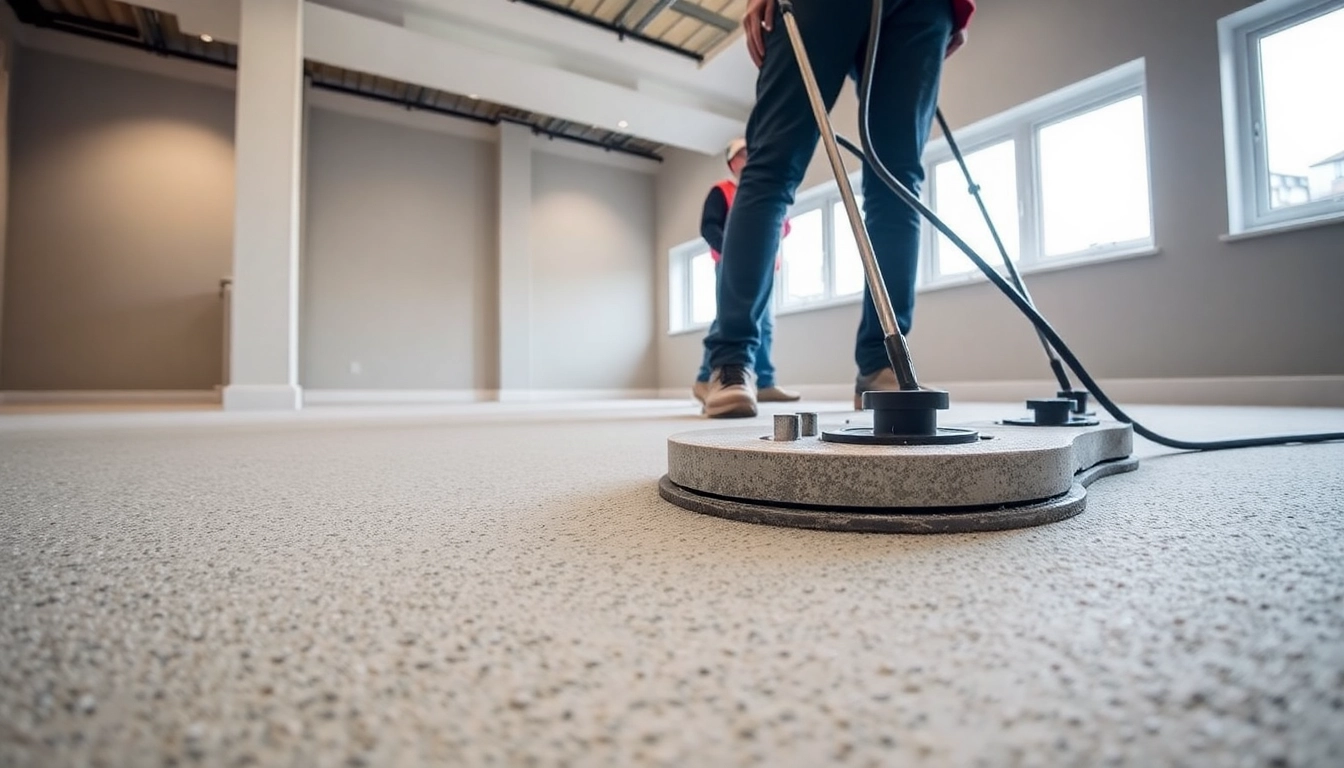Expert Liquid Screeding Services in Birmingham for Lasting Floor Solutions
When it comes to modern flooring systems, particularly in Birmingham’s diverse architectural landscape, liquid screeding has emerged as a game-changer. Its ability to create ultra-smooth, level floors quickly and reliably has made it a preferred choice for homeowners and builders aiming for high-quality finishes. If you’re considering upgrading your flooring or installing underfloor heating, understanding what liquid screeding entails and its advantages is essential. To explore expert services, visit Liquid screeding Birmingham for reliable local providers. Liquid screeding is a highly flowable, pumpable material used to create a level subfloor surface. Comprising a mixture of sand, cement, additives, and modern polymers, it is poured over pre-installed underfloor heating pipes or insulation layers. Its liquid form allows it to flow easily into every nook and cranny, filling gaps, and eliminating unevenness that traditional screed often leaves behind. This process involves preparing the substrate, pouring the liquid mix, and then spreading and leveling it using specialized equipment. The flow characteristics ensure a consistent application, reducing the need for manual levelling and enabling swift project completion. Birmingham, a city renowned for its thriving construction and renovation projects, benefits immensely from the advantages of liquid screeding. These include: As Birmingham continues to expand, incorporating sustainable and efficient building methods like liquid screeding adheres to both economic and environmental goals. Traditional sand and cement screeds have long been used in construction, but they possess limitations that liquid screeding addresses effectively: Conventional screeds often require multiple curing days and manual levelling, which can delay projects. Liquid screeds, in contrast, can be poured and finished within a day, allowing for quicker progression to the next phase. The fluid nature of liquid screed yields a uniformly flat surface with minimal finishing work needed. Traditional methods, prone to unevenness and inconsistencies, often demand additional levelling and smoothing, increasing labour costs. Liquid screed adapts better to complex floor geometries, including underfloor heating systems, where pipe-coating precision is crucial. Traditional screeds may struggle to achieve the same level of detailed application without considerable extra effort. Modern liquid formulations include additives that enhance endurance, shrinkage control, and crack resistance, surpassing the longevity of many traditional screed mixes. Ultimately, choosing liquid screeding in Birmingham offers a combination of speed, accuracy, and longevity that is hard to match with conventional methods, making it the smarter solution for contemporary construction demands. Expertise matters greatly; seasoned contractors with a track record of successful projects in Birmingham are better equipped to handle the unique challenges of local building regulations and site conditions. Verify their industry certifications and memberships to ensure quality standards are met. Ask about the types of liquid screed mixes they employ. Reputable firms use high-grade materials and state-of-the-art pumping equipment for optimal results. High-quality materials translate into better finish, durability, and energy efficiency. Recent customer feedback provides insight into their reliability, professionalism, and project management capabilities. Seek references or reviews from local clients who have experienced their services firsthand. Professional contractors conduct site evaluations, measuring floor dimensions, assessing substrate conditions, and planning for underfloor heating integration if required. Clear communication about project timelines, costs, and specific requirements sets a solid foundation. Proper substrate preparation ensures adhesion and longevity. This includes cleaning, priming, and installing insulation or moisture barriers. Once preliminary steps are complete, the liquid screed is pumped over the area, levelled with automated tools, and left to cure. Post-application inspections verify flatness and adherence to specifications. Reputable contractors often provide guarantees and aftercare advice, ensuring your floor remains durable and well-graded over time. Cost varies based on project size, specification complexity, and the type of screed used. Typically, rates are calculated per square metre, inclusive of materials, application, and finishing. Obtain detailed quotations from multiple providers and verify included services to ensure competitive pricing. While initial costs may seem significant, efficient heat transfer and a durable surface can lead to long-term savings on energy bills and maintenance, making liquid screeding a financially sound investment. In some cases, government schemes or local incentives encourage eco-friendly building practices, including underfloor heating and modern screeds. Check with local authorities or energy schemes for possible grants. Advances include self-leveling formulations, faster-curing mixes, and smart monitoring systems to track curing progress, ensuring the highest quality finish in minimal time. Growing emphasis on sustainability has led to the development of low-carbon, recycled-content screeds and biodegradable additives that minimize environmental impact while maintaining performance standards. Future developments focus on integrating liquid screeding with IoT-enabled thermostats and sensors, allowing homeowners to optimize heating efficiency, reduce waste, and enhance comfort through automation.Understanding Liquid Screeding and Its Benefits in Birmingham Homes
What is Liquid Screeding and How Does It Work?
Advantages of Choosing Liquid Screeding in Birmingham
Comparing Liquid Screed to Traditional Floor Methods
Speed and Efficiency
Level of Precision
Application Flexibility
Performance and Durability
Key Factors to Consider When Selecting a Liquid Screeding Contractor in Birmingham
Experience and Certification of Installers
Quality of Materials and Equipment Used
Reputation and Customer Reviews
Process Overview: From Planning to Completion of Liquid Screeding Projects
Initial Assessment and Planning
Preparation and Application Stages
Final Inspection and Guarantees
Cost Considerations and Budgeting for Liquid Screed in Birmingham
Pricing Factors and Quotation Tips
Budgeting for Long-Term Benefits and Energy Savings
Potential Financial Incentives and Support
Future Trends and Innovations in Liquid Screeding and Underfloor Heating in Birmingham
Emerging Technologies in Floor Screeding
Environmental Sustainability and Eco-Friendly Materials
Integration with Smart Home Heating Systems
